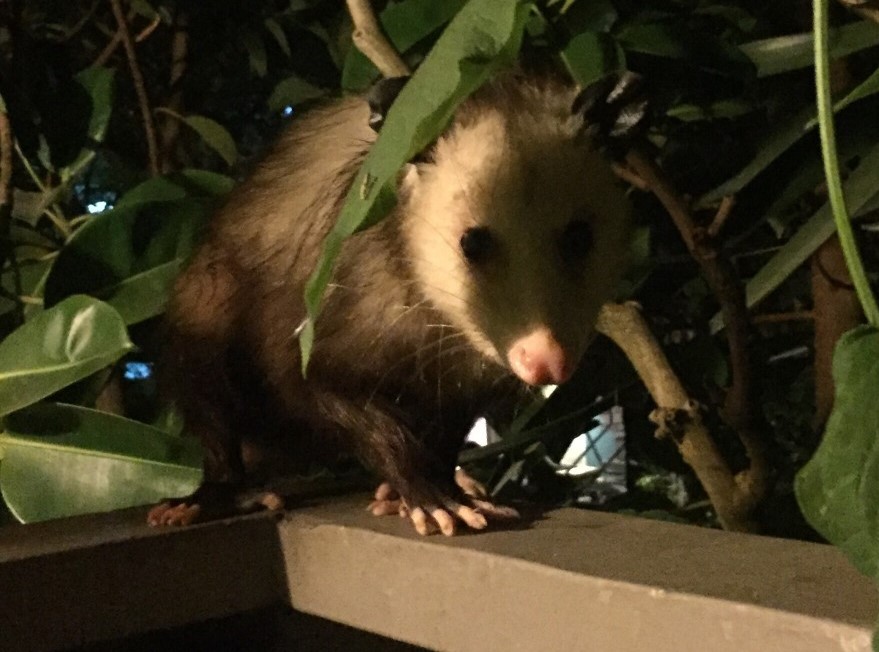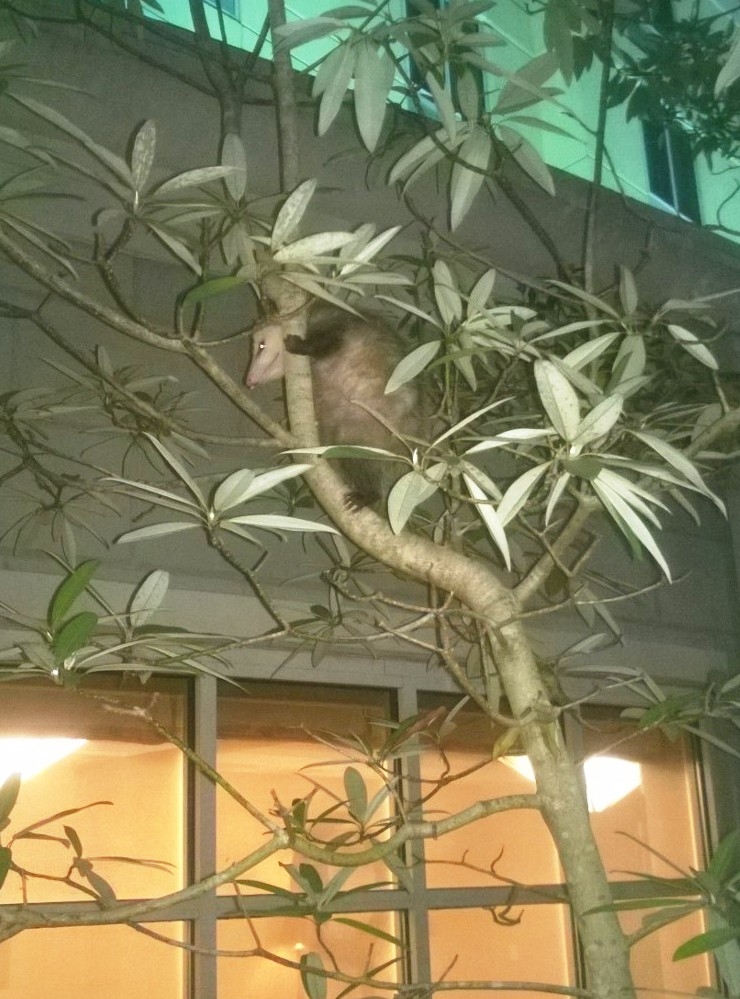
December 28, 2021
Can Opossums Climb And Get In Your Walls?
If you are like most homeowners, you do not like wildlife taking up residence in your house. Perhaps you are wondering whether opossums can climb and get in your walls. If you do not take precautions, the answer is “Yes!”
How High Can Opossums Climb?
Opossums are incredibly agile, they can easily climb a tall vertical wall. They are known to jump from a tree to a roof at a distance of up to 13 feet. This wildlife can use its thumbs, feet, claws, and tails to climb many different surfaces.
When it comes to how high they can actually climb, it is difficult to determine. It all depends on what they can grab onto, and the surface itself.
While an opossum can climb up a vertical wall, it is easier for one to navigate horizontal surfaces. The animal can do even more climbing if there is a tree near your house, or if you have gutters, eaves, or shingles on your house. As they can climb very high, you may find possums are living in your attic.
Can Opossums Live In Your Walls?
Possums prefer attics, porches, or sheds to make a nest, but they can live in your walls, too. Occasionally, they might end up inside walls because they get stuck or just feel comfortable in there. Similar to other pests, this is a concern you should take seriously.
There are some important reasons to make the walls in your home off-limits to possums.
First, consider the breeding habits of possums. Possums can breed throughout much of the year. While male possums mate with multiple females, a female possum can have one or two litters each year. On average, a litter has between 6 and 9 possums, but litters can be even larger.
Second, possums carry diseases. Even if you do not come into direct contact with a possum, this can lead to germs and bacteria in your home. They can also carry fleas, ticks, toxoplasmosis, salmonella, leptospirosis, and other serious health hazards. You certainly do not want them in your house because they can make you and your family ill.
A third reason to not want opossums in your walls is the damage they can cause. If they find themselves stuck somewhere in the house, they may chew through the walls or destroy the air ducts, just to get out. They can tear up the insulation in your walls, and chew on wooden structures. They can also chew on electrical wiring, which is a fire hazard.
Possums can be bothersome anywhere in your home, but you should definitely take action if they are in your walls.

How To Know If There’s A Possum Living In Your Walls?
First, you may hear all kinds of odd noises in your walls, especially during the nighttime. One reason they make noise is they need to search for food. As possums are nocturnal animals, you may hear scraping and shuffling sounds as the animal is moving around in your walls.
You can hear noises when they are nesting, and when a new litter of possums arrives. Excessive scratching noise can indicate a female possum is making a nest. Baby possums make squeaking sounds.
However, the level of activity and the level of noise can both increase if there are multiple adult opossums in the wall. Clicking, hissing, chattering, growling, grunting, and screeching are signs that you are dealing with more than one animal. When male possums want to mate with females, they often make clicking and shook-shook sounds.
Unusual noise is not the only way you can determine the presence of possums in your walls. The second sign of possums is the odor. There are actually a number of different sources. While a possum has its own natural musky odor, the odor from its feces and urine is horrible.
In addition, opossums give off an odor when they are afraid, or fighting. Any strange odor coming from your walls should be investigated.
The third sign of possums is possum poop. The odor is similar to ammonia gas. The feces look similar to dog feces. It is approximately the same size and is usually dark brown. Opossum feces can carry a strain of bacteria that is very dangerous to people.
Fourth, you may see visible signs that opossums are in your house. Perhaps you notice pet food, or your own food, has disappeared. Perhaps your garbage can has been rummaged through or knocked over. Possums generally do not care what they eat. As scavengers, they are as happy with leftovers you put in the trash can as stealing food from your pet’s bowl or a sandwich you did not finish.
There can be other visible signs to the house itself. You may see damage to your home’s exterior or interior. Claw marks, and marks from scraping, scratching, and chewing are clear signs an animal is living in your house, and that animal could be an opossum.
If you suspect a possum is in your house, it is time to investigate. And if you know these animals are present, it is time to get rid of them.
Opossum removal from walls is essential to prevent costly damage to your home. However, larger animals, such as opossums, can prove tricky to exclude. They need to be captured using safe and humane live cage traps.
We are committed to solving your possum problem in the most efficient way possible. So get in touch with the experts at Westchester Wildlife for a free quote or just for some free phone consultation.
